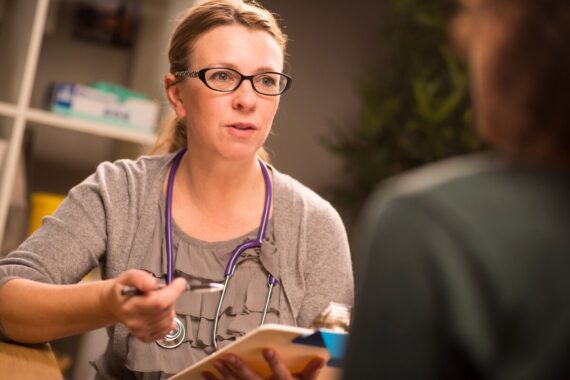Burnout rates increase among GP trainers, finds GMC survey

Burnout rates have increased among GP trainers, the GMC’s annual training survey has revealed.
The survey found that 67% of GP trainers said they were either ‘somewhat’ burned out, or burned out to a ‘high’ or ‘very high degree’.
This is an increase of two percentage points, from 65% in 2021.
The survey, published today, also highlighted that 63% of trainee doctors are at ‘moderate to high risk of burnout’.
While trainees gave high ratings for the quality of their training, the GMC said ‘the risk of burnout is now at its worst since it was first tracked in 2018’ among trainees.
And it added that GP trainers have recorded the ‘largest continuous decline of positive responses to the survey since 2019’.
The poll, which surveyed more than 67,000 doctors in training or trainers earlier this year, also found:
- 90% of GP trainers said their work was ‘emotionally exhausting’;
- Almost a quarter (24%) of GP trainers said they felt burnout to a ‘very high’ or ‘high’ degree because of their work;
- Nearly three-quarters (73%) of GP trainers said they always or often feel worn out at the end of the working day;
- 68% of GP trainers said they are exhausted in the morning at the ‘thought of another day at work’;
- More than three-quarters (76%) of GP trainers felt their work frustrated them.
More positive findings included:
- Almost nine in ten (87%) trainees in general practice posts described the quality of teaching as ‘good’ or ‘very good’;
- 92% of GP trainers agreed with the statement that they ‘have access to the training and support [they] need to provide effective feedback on [their] trainees’ performance’;
- 87% of GP trainers said the resources they need to perform their role as a trainer are available to them in their practice;
- 85% of GP trainers said if they have a trainee requiring extra support, they have good support from their employer.
GMC chief executive Charlie Massey said that GPs are often the first port of call on a patient’s journey and they have ‘weathered increasing pressures’ amid Covid backlogs.
He said: ‘The impact of this has been reflected in this year’s survey, where negative responses to burnout-related questions among GP trainees and trainers have increased compared to last year.
‘What has been steadfast throughout is the quality of training. Despite the many pressures, nine out of ten GP trainees described the quality of their training as either “good” or “very good”.’
He added: ‘That is testament to the dedication, hard work and commitment of trainers. But there is no room for complacency and GP trainers must be supported to balance their training commitments alongside their heavy workloads.’
Dr Rob Hendry, medical director at the Medical Protection Society, said: ‘The GMC is right to highlight the risks when healthcare professionals are exhausted and burned out. It is not only concerning for their personal wellbeing but for patient care.
‘We need to develop a much deeper understanding of how Covid-19 has impacted on training, workloads and mental wellbeing, and ensure appropriate support structures are in place for doctors.’
He added: ‘Without this, we may lose more staff from the workforce, placing even more pressure on stretched resources.’
Last year’s survey saw the GMC raise similar concerns about pandemic pressures on general practice.
And the GMC’s 2020 training survey found that nine in 10 (91%) GP trainers said the pandemic had reduced their trainees’ opportunities to gain the ‘required curriculum competencies’.
Meanwhile, a ‘staggering’ BMA survey found in May that one in eight GP trainees will choose not to become GPs in future.
Pulse July survey
Take our July 2025 survey to potentially win £1.000 worth of tokens

Related Articles
READERS' COMMENTS [1]
Please note, only GPs are permitted to add comments to articles














Not that relevant.
It’s optional. And you get paid for it. And the GP trainee plugs the gaps in your team…so win win model. Some surgeries literally run on 3 or 4 trainees per day. Like burnout from your PCN – complaining when it’s self inflicted is dry.